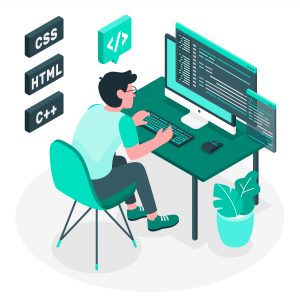
Learning coding is an exciting journey that opens up numerous opportunities in today’s digital world. Whether you’re a complete beginner or have dabbled in coding before, this comprehensive guide will provide you with a roadmap to kickstart your coding journey and progress towards becoming a proficient coder.
- Understand the Basics
Before diving into coding, it’s essential to grasp the fundamentals. Start by understanding key concepts such as variables, data types, loops, and conditional statements. According to a survey conducted by Stack Overflow, these fundamental concepts are essential building blocks for programming knowledge and are crucial for success in various programming languages. - Choose a Programming Language
There are numerous programming languages to choose from, each with its own strengths and applications. Some popular languages for beginners include Python, JavaScript, and Ruby. According to the TIOBE Programming Community Index, Python has consistently ranked as one of the most popular programming languages, known for its readability and versatility. Research the characteristics and applications of different languages to find the one that aligns with your goals and interests. - Set Clear Goals
Establishing clear goals is crucial to stay focused and motivated during your coding journey. Determine what you want to achieve with coding—whether it’s building websites, creating mobile apps, or diving into data science. According to a study by McKinsey, the demand for coding and programming skills is rapidly increasing across various industries, and setting clear goals will help you align your learning with the skills that are in high demand. - Online Coding Platforms
Take advantage of online coding platforms that offer interactive coding exercises and projects. Platforms like Codecademy, FreeCodeCamp, and Coursera provide structured courses and practical coding challenges. These platforms offer a supportive community, feedback, and the opportunity to collaborate with fellow learners. According to a survey conducted by GitHub, 87% of developers reported using online learning platforms to enhance their coding skills. - Practice, Practice, Practice
Coding is a skill that improves with practice. Dedicate regular time to coding exercises, projects, and challenges. Engage in coding communities and forums to seek guidance, share your work, and learn from others. According to research published in the Journal of Applied Research in Higher Education, deliberate practice is a key factor in skill development, and consistent coding practice significantly enhances coding proficiency. - Build Projects
Hands-on projects are an essential part of the learning process. Start with small projects and gradually tackle more complex ones. Building projects helps you apply what you’ve learned, identify areas for improvement, and gain practical experience. According to a study conducted by the National Research Council, project-based learning improves retention rates and deepens understanding compared to passive learning methods. - Collaborate and Network
Coding is not a solitary activity. Engage with fellow coders, participate in coding meetups, join online communities, and contribute to open-source projects. Collaborating with others exposes you to different perspectives, fosters learning, and allows for valuable feedback on your work. According to a survey by Stack Overflow, 72% of developers reported learning from their peers as a primary method for improving their coding skills. - Stay Updated
The coding landscape evolves rapidly, with new technologies and frameworks emerging regularly. Stay updated with the latest industry trends, new programming languages, and advancements in the field. According to the IEEE Spectrum’s annual ranking, programming languages like Python, JavaScript, and Java consistently rank high in popularity and usage. Follow influential coding blogs, subscribe to coding podcasts, and explore relevant social media channels to stay informed and inspired. - Embrace Challenges
Coding can be challenging at times, but don’t be discouraged. Embrace challenges as opportunities to grow and learn. Debugging and troubleshooting are integral parts of the coding process, and overcoming obstacles will strengthen your problem-solving skills. According to research published in the Journal of Research and Practice in Information Technology, resilience and perseverance in the face of coding challenges are key indicators of success in programming.
Embarking on a coding journey may seem daunting at first, but with the right mindset, resources, and dedication, you can develop valuable coding skills. Remember to start with the basics, choose a programming language that suits your goals, set clear objectives, practice regularly, build projects, collaborate with others, stay updated, and embrace challenges along the way. By following this comprehensive guide, you’ll be well on your way to becoming a proficient coder. Happy coding and best of luck in your coding endeavors!



